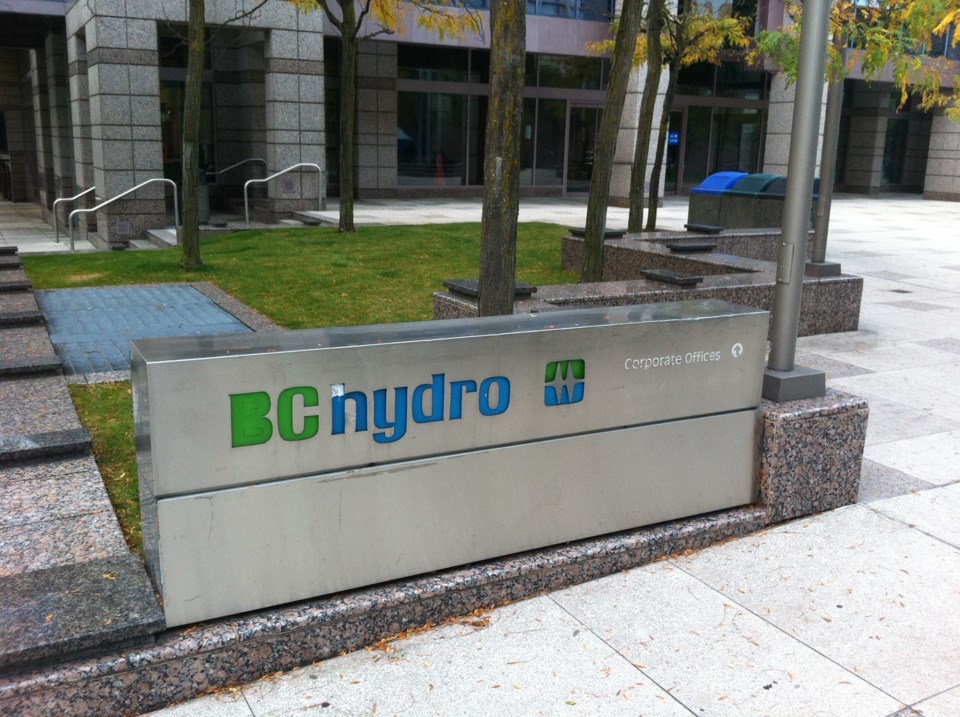 People who heaved a sigh of relief last year when Energy Minister Michelle Mungall said a freeze on electricity rates was a done deal clenched back up last week.
People who heaved a sigh of relief last year when Energy Minister Michelle Mungall said a freeze on electricity rates was a done deal clenched back up last week.
The vaunted freeze melted away. Rates will go up three per cent in April, which is exactly what Mungall promised was not going to happen.
Customers who feel aggrieved about the turnaround don’t have much recourse. The government belatedly realizes it is on shaky ground and isn’t going to bother engineering a workaround to make the freeze happen.
“We will continue to respect the independence at the BCUC,” Mungall told the house Monday.
Maybe customers can go to the advertising standards council and complain about the self-promoting ads and news releases that now turn out to be dead wrong.
“B.C. Hydro rates have skyrocketed by 30 per cent over the last four years. We’re freezing them until April 2019.”
That definitive pronouncement was made multiple times with minimal reference to the fact that the independent B.C. Utilities Commission has the final say. It made its views known last week, and Mungall was still sputtering in disappointment Monday when the Opposition tackled the discrepancy.
“The BCUC decided to go with what is essentially the B.C. Liberal rate hike rather than our proposed rate freeze. What it boils down to is that we have a financial mess at B.C. Hydro.”
The more pertinent point is that the NDP confidently portrayed themselves as knowing how to go about cleaning it up, an impression that is now in doubt. The NDP campaigned on a Hydro rate freeze. The premier’s marching orders to Mungall directed her to get it imposed. Now it’s vanished.
Mungall vastly over-estimated her own power and under-estimated the commission’s power to ignore government wishes.
Even the NDP’s most important supporter — Green Party Leader Andrew Weaver — condemned the performance.
“Let’s be clear: Government misled B.C. on the Hydro rate freeze. There’s no two ways of saying it. I find it remarkable that they’re trying to claim otherwise.”
The BCUC decision is several decisions on various Hydro requests for permission. And it’s worse than the embarrassment of having a key election promise shredded by an independent regulator. To simplify a 112-page technical document, the NDP government’s main justification for seeking approval of a freeze was: “Because we promised one.”
The commission, as politely as possible, said that was “insufficient regulatory justification.”
Now the NDP knows why the B.C. Liberals ignored the BCUC whenever possible.
A request to change the scope of a deferral account was denied, which leaves B.C. Hydro with less manoeuvring room than it wanted. Another request on a different account was also denied, as were a few other technical requests. B.C. Hydro got several requests approved, but it also got a few dozen directives to take second looks at issues.
The BCUC looked at the 10-year rate plan that B.C. Hydro submitted and also heard from people who had concerns about the risks associated with it. Guess whom the commission sided with?
The skeptics. “The panel generally agrees with these concerns.”
One of the key concerns was Hydro’s historical tendency to over-forecast the load.
Because the load has been less than forecast for the past nine years, the annual variance in yet another deferral account has gone from $20 million to $269 million — a billion-dollar increase over eight years, the commission said.
There is also concern about the high unit costs of Hydro’s portfolio of purchases from independent producers.
So the NDP pitched the crowd-pleasing idea of a one-year freeze on Hydro rates. Mungall directed that it take effect and sent it to the BCUC to be rubber-stamped. But when a room full of energy experts with deep knowledge of the electricity market examined the idea, they rejected it. The last thing B.C. Hydro can do is forgo $140 million in revenue.
Customers will be lucky if rate hikes are held to the 2.6 per cent range in the mid-term.
There’s no question the previous government sailed the utility very close to the financial limits, if not past them. But the new team on the bridge looks a lot less confident than it once did about where to go next.



